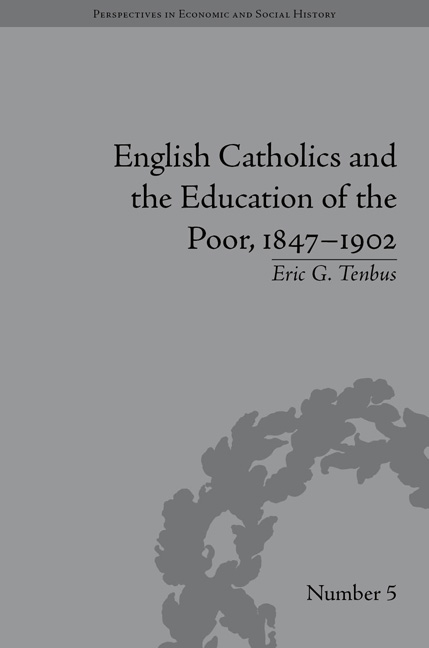Book contents
- Frontmatter
- CONTENTS
- Dedication
- Preface and Acknowledgements
- 1 A Church Divided and the Educational Solution
- 2 The Status of Catholic Education at Mid-Century and the Catholic Educational Philosophy
- 3 Educational Obstacles to Overcome
- 4 English Catholics and the Politics of Education, 1847–70: Preparing for Battle
- 5 English Catholics and the Politics of Education, 1870: The Battle Begins
- 6 English Catholics and the Politics of Education, 1871–90: Engaging With the Enemy
- 7 English Catholics and the Politics of Education, 1891–1902: A Strategy for Success
- 8 Catholic Education and Identity after the Balfour Act: The Battle Ends but the Fight Continues
- Notes
- Works Cited
- Index
5 - English Catholics and the Politics of Education, 1870: The Battle Begins
- Frontmatter
- CONTENTS
- Dedication
- Preface and Acknowledgements
- 1 A Church Divided and the Educational Solution
- 2 The Status of Catholic Education at Mid-Century and the Catholic Educational Philosophy
- 3 Educational Obstacles to Overcome
- 4 English Catholics and the Politics of Education, 1847–70: Preparing for Battle
- 5 English Catholics and the Politics of Education, 1870: The Battle Begins
- 6 English Catholics and the Politics of Education, 1871–90: Engaging With the Enemy
- 7 English Catholics and the Politics of Education, 1891–1902: A Strategy for Success
- 8 Catholic Education and Identity after the Balfour Act: The Battle Ends but the Fight Continues
- Notes
- Works Cited
- Index
Summary
In the minds of Catholic leaders, the state overreached itself with the Education Act of 1870. It was that fateful year, as Manning later told a crowd of Catholics in 1885, that the ‘children in English schools [became] children of the State’. Prior to 1870, all education was provided by voluntary schools of various denominations supported by internal subscriptions and state education grants. The Act, however, established nondenominational board schools, supported by rates paid by all property owners, in direct competition with the denominational schools. This event forced Manning and the rest of the hierarchy to re-evaluate their political stance; they realized that an aloof position outside the political arena rendered them ineffective. With the 1870 Act we see Catholic political action for education, both inside and outside of Parliament, expand far beyond what it had been previously. In Manning's eyes, when the state discarded the system that provided all elementary education and forcibly thrust itself wholly on education instead, then ‘the clergy had a right to enter into practical politics’. A culmination of increasing Catholic political activity in 1870 combined with a debate over a significantly altered education system that, in Catholic minds, led to an injustice against which they would aggressively fight for years to come.
Education Enters the Catholic Political Landscape
The issue of elementary education permanently entered the political agenda of Catholics in 1870 and shared prominence with Irish aff airs until the end of the century.
- Type
- Chapter
- Information
- Publisher: Pickering & ChattoFirst published in: 2014



